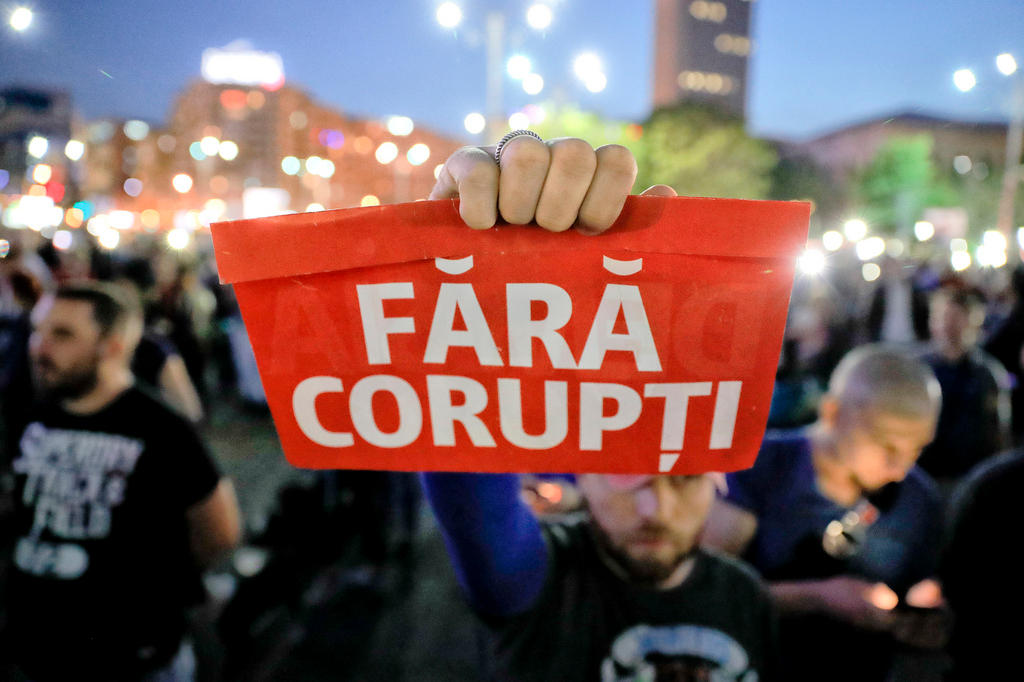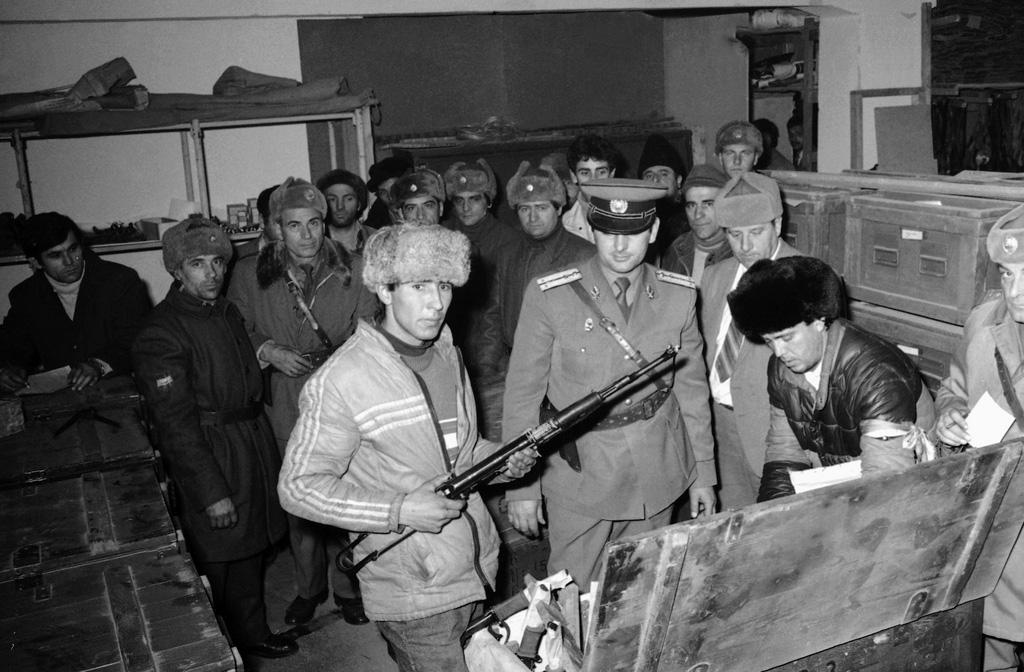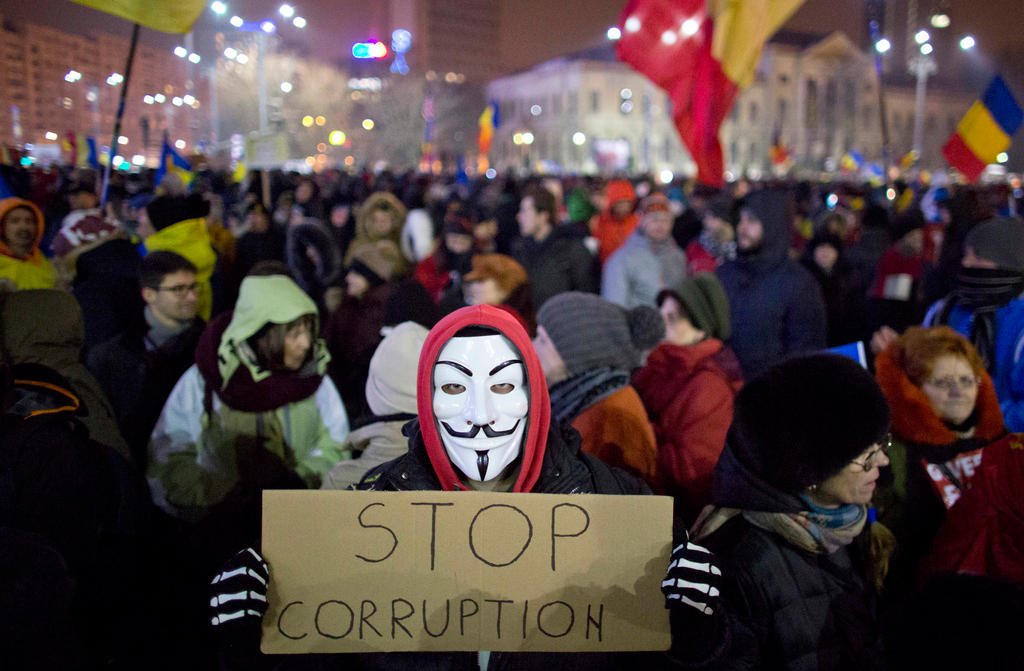The Romanian corruption challenge to democracy

Romania has recently seen the biggest pro-democracy and anti-corruption protests since the end of communism more than 25 years ago. The opinion that these events were organized by the secret services is a very distant departure from the true reasons, suggests Lucian Ancu.
A recent op-ed by Bogdan Sorin touched on some of the events that happened earlier this year in Romania. In his article, Sorin suggested that the events were an orchestration of the secret services. In my opinion this a very distant departure from the reasons that drove so many people on the streets of Romania.
The protests in Romania were the most comprehensive in the modern history of the country. People not only gathered in the big cities but also in small ones and abroad (in Switzerland there were protests in Zürich, Geneva and Bern).

The events unfolded immediately after the general elections in December 2016 that brought the victory of the Social Democratic Party (PSD) with 45% of the votes. The leader of this party, Mr. Dragnea, could not claim the Prime Minister position as he was convicted for electoral fraudExternal link and has an ongoing second trial for abuse of officeExternal link. Mr. Grindeanu, the PSD’s second proposal for Prime Minister (the first being rejected by the president), managed to form a government on January 4. Among the first laws that became a priority on the government’s agenda was an emergency ordinance and a pardon law that were aimed at addressing overcrowding problems in Romanian jails. The living conditions in Romania’s penitentiary system were a long-standing issue and needed to be addressed. However, the ordinance was not only addressing these issues but seemed to have been purposely tailored so that many of the politicians that were under investigation or had already been convicted to jail sentences would be freed. It also mentioned the arbitrary level of what constitutes abuse of office (i.e. €44,000), which would have put Dragnea on the “safe” side in his second trial. Many, including myself, viewed this as governing in the self-interest and not in the interest of the people.

More
Romania’s street protests: the real story
Widespread corruption
It should be said that Romania, while progressing on many fronts, is still moving from an extractive society to an inclusive one. Before 1989, the ruling party was the Communist party. Politicians across the political spectrum have been connected with corruption deals involving state contracts in the last decade, which proved to be a very lucrative extraction method. Lately, these contracts came under the scrutiny of the anti-corruption prosecutor’s office (DNA) that sent to trial many of the political figures involved with these deals. Under Romanian law, parliament has to approve the judiciary investigation of its members and in many cases, parliament voted against it. The most recent case in which parliament blocked prosecutors from further investigating one of its members happened in late MayExternal link.
This article is part of #DearDemocracy, a platform on direct democracy issues from swissinfo.ch.
While immunity for political opinions is self-evident in any democracy, this extended immunity is in place in Romania and under this rule many of the corrupt politicians cannot be brought to justice. Out of 50 requests for investigation or restraint of members of parliament submitted for approval by DNA in the 2012-2016 legislature, 20 were rejected. External link
The history of Romania’s Social Democratic Party hints at the rationale that this action was not innocent. For people following the developments in the area of education and research, this way of acting reminded them of the removal of the National Ethics Committee’s members who were deliberating whether Mr. Victor Ponta (former Prime Minister of Romania and former leader of the Social Democratic Party) had plagiarised his PhD thesisExternal link. Soon after instating the new committee, its members issued a decision stating no plagiarism had taken place despite the fact that the University of Bucharest, where Mr. Ponta defended his PhD, claimed the oppositeExternal link. The same fast and forceful action took place on the night of January 31 under the Grindeanu government when Ordinance 13 regarding changes to the penal code was approved in a cabinet meeting that had started around 10pm and was published the same night in the Official Gazette of Romania (Monitorul Oficial). It was cancelled by a second ordinance – number 14- on February 5 under growing pressure of massive demonstrations. The demonstrators later gathered every night until both of those ordinances were cancelled in parliament as well.
New protest in the making?
One might say that this is the end of the saga, but unfortunately a law pardoning sentences less than 5 years – proposed by the government in the aforementioned package on January 31 – was approved by the Senate on May 23 without plenary debate. The lack of debate was due to exceeding the time limit setExternal link for gathering all approvals from the Senate’s interior commissions. The proposal is now headed to the lower chamber where it will hopefully be discussed and either rejected or passed into law. The latter scenario will likely spark a fresh row of protests.
It so happens that very recently, on May 23, the Joint Task Mechanism on Mapping Conflict of Interest in Romania has published a pollExternal link on the population’s view on issues pertinent to corruption and conflicts of interest. (The Joint Task Mechanism is an initiative between the National Agency for Integrity and the Institute for Public Policies, sponsored under the Swiss-Romanian Cooperation Programme).
A large majority of the respondents (87%) declared that corruption is the most important issue to be addressed by Romania in order to allow developments that would move the country forward. They also identified conflicts of interest as an act of corruption (78%) and considered that conflicts of interest are largely present in the parliament and government (85% of the respondents agreed). Some 80% of the respondent said that strengthening of the institutions that are in charge of finding and investigating such situations are important to the prevention and control of conflicts of interest.
Defending the rule of law
The outcome of these events is that the population is much more active in defending the rule of law in Romania and is closely monitoring the activity of the parliament and government. These people were definitely not “demonstrating against their own interests”, as Sorin put it, but for applying same rigour of law as it is being done across Europe. The conflict of interest was and still is a key issue that the Romanian Parliament needs to address and put into legislation in a form that would allow for more inclusion and equality of all citizens before the law.
The views expressed in this article are solely those of the author, and do not necessarily reflect the views of swissinfo.ch.

In compliance with the JTI standards
More: SWI swissinfo.ch certified by the Journalism Trust Initiative

You can find an overview of ongoing debates with our journalists here. Please join us!
If you want to start a conversation about a topic raised in this article or want to report factual errors, email us at english@swissinfo.ch.